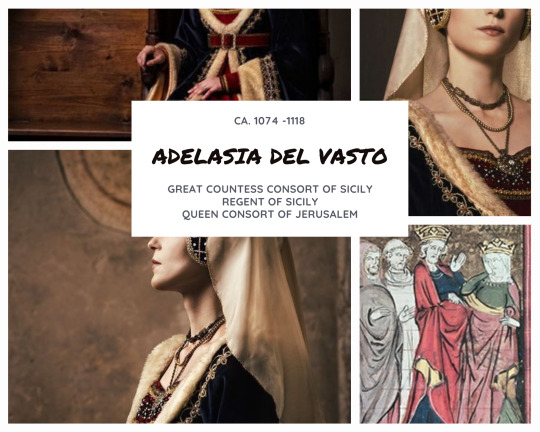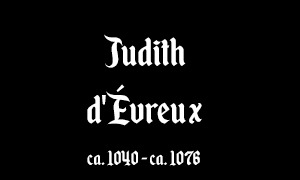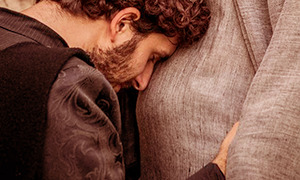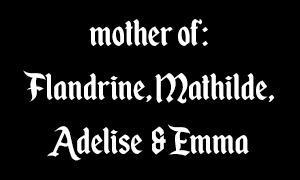#malaterra
Explore tagged Tumblr posts
Text
Hello Broadchurch fans guess who finally finished translating all 8 episodes of the French version of Broadchurch into English! Me! I did it! Still gonna take a bit to get the captions on video but!! Exciting nonetheless! Now if anyone wants to know anything about Malaterra I may qualify as an expert. So. That’s fun! Send me asks if you wanna know stuff!
#david tennant#broadchurch#Malaterra#holy shit this was a lot of work#and I’m really happy I did it!
10 notes
·
View notes
Photo

“In the year of the Incarnation of the Savior 1089, Count Roger took a new wife, his former one, Eremberga, daughter of Count William of Mortain, having died. Her name was Adelaide and she was the niece of Boniface, that most renowned marquis of Italy; to be precise, she was the daughter of Boniface’s brother. She was a young woman with a very becoming face.”
Goffredo Malaterra, The Deeds of Count Roger of Calabria and Sicily and of his Brother Duke Robert Guiscard, book 4, ch. 14
Adelasia (or Adelaide) was born around 1074 in Northwestern Italy. Her parents were Manfredi (or Manfredo) Incisa del Vasto, a member of the Aleramici House, and his unnamed wife. From her paternal side, she was the niece of Bonifacio, Marquis of Savona and of Western Liguria, “the most renowned marquis of Italy” (in Goffredo Malaterra, The Deeds of Count Roger ..., book 4, ch. 14). Adelasia had a brother, Enrico, and two unnamed sisters.
Following their father’s tragic death (killed together with his brother Anselmo during a popular uprising in 1079), the siblings were entrusted to the guardianship of their uncle Bonifacio, although quite soon Enrico decided to travel all the way to Southern Italy to help the Norman leaders Robert and Roger Hauteville in their conquest.
The Aleramic scion was gifted with the counties of Butera and Paternò for his services. But the del Vasto family fortunes were destined to grow as Enrico’s sisters married into the newly established Hauteville comital dynasty. His unnamed sisters were betrothed to the Great Count Roger’s bastard sons Goffredo (who would die young without getting the chance to marry) and Giordano, while Adelasia married the Great Count himself.
In 1089 Roger was at his third marriage. His first (and beloved) wife Judith d'Évreux had given him only daughters before dying in 1076. The following year, he married Eremburge de Mortain, who bore him his first legitimate son, Malgerio, and died in 1089. With just a son (who would die young around 1098) as heir, it isn’t surprising Roger remarried. The choice of an Italian wife (his previous ones had been fellow Frenchwomen) was part of the Hautevilles’ strategies to latinize Southern Italy by welcoming Gallo-Italic immigrants with the hoped result to counter the already existing Greek-Arabic majority.
Adelasia would bore Roger two sons: Simone (born in 1093) and Ruggero (born in 1095 – although Malaterra records “in the year of the Incarnation of the Lord 1098, Countess Adelaide became pregnant again by Count Roger” in Goffredo Malaterra, The Deeds of Count Roger ..., book 4, ch. 26) and at least one daughter: either Matilda (born between 1093-1095, future Countess consort of Alife) or Maximilla (birth date unknown, future wife of Count Palatin Ildebrandino VI Aldobrandeschi), or perhaps both of them.
The Great Count died on June 22nd 1101 in Mileto (Calabria). Following her late husband’s wishes, 27-years old Adelasia assumed the regency of the county for her 8-years old son, Simone, who became the new Count of Sicily. She smartly surrounded herself with capable and trusted men, like her brother Enrico, or Christodulos, a Greek Orthodox (possibly a Muslim convert) admiral who had been nominated amiratus (Grand Dignitary) of Sicily already under Ruggero I.
Little Count Simone’s rulership was tragically shortlived as the child died in Mileto, on September 1105, at just 12 years old. He was succeeded by his younger (and, according to the sources, better-suited) brother, Ruggero. As the new Great Count was even younger (10 years old), Adelasia resumed her role of Regent. It is in this period, precisely in 1109, that the Warrant of Countess Adelasia, Europe’s oldest known paper document, was issued.
Although a more generous patron for the Latin clergy, Adelasia maintained a good relationship with the Muslim and Greek communities, granting them freedom of worship and a relevant administrative autonomy (so that in a Greek-Arab charter dated 1109 she is called malikah). She was well aware that, following the change of ownership, her adoptive country was in need of a stabler bureaucratic apparatus, justice administration and a proper capital city. Mileto had been dear to her late husband, but Adelasia had different ideas. Although she preferred Messina for its strategic position, she realised Palermo, having been the capital of the Sicilian Emirate and thus adorned with splendid buildings, was better suited to become the capital of the Hauteville counts. In 1112 she moved the capital from Mileto to Palermo and that same year she stepped back from the Regency, allowing her son Ruggero to start ruling by his own right.
Not used to sitting around and willing to increase her son’s power and fortunes, the dowager Countess accepted to marry in 1113 the childless and older Baodouin I, King of Jerusalem. Prenuptial agreements stated that, in the absence of issue, the Kingdom of Jerusalem would have been inherited by Ruggero and his descendants. This royal marriage proved to be a faux pas as Boudouin was still legally married to his second wife, Arda of Armenia. The King had merely decided to chase her away, sending poor Arda to live in a nunnery, but then simply allowed her to go back to her father’s home in Constantinople without properly annulling the marriage and casting the shadow of bigamy over the new marital union. Moreover, always in need of money to pay for the troops, soon Baodouin spent all of Adelasia’s dowry. Taking advantage of a temporary illness, Papal Legate Arnoul de Chocques convinced the King to annul the marriage so that his wife could be sent back to Sicily. Despite complying, the King was not the least happy as he wished to milk some more the of his Norman wife’s riches, but as the royal union was still childless, Pope Pasquale II could not risk seeing the Hauteville expand their influence over the Holy Land in a possible near future.
In 1117, after four dissatisfying years as Queen Consort of Jerusalem, Adelasia returned back to Palermo. She spent the last year of her life devoting herself to religion. She died in Patti (near Messina) on April 16th 1118 and was buried in the city’s cathedral, where she still lies.
In 1130, her beloved son Ruggero would be crowned the first King of Sicily. According to chronicler William of Tyre, Ruggero never forgot the humiliation his mother had to suffer in Jerusalem so that he and his heirs never truly reconciled with the Kingdom of Jerusalem (“Qua redeunte ad propria, turbatus est supra modum filius; et apud se odium concepit adversus regnum et ejus habitatores, immortale” William of Tyre, Chronicon, XI.29)
Sources
Brugnoli Alessio, La tomba di Adelasia del Vasto
Catlos Brian A., Infidel kings and unholy warriors : faith, power, and violence in the age of crusade and jihad
Curtis Edmund, Roger of Sicily and the Normans in Lower Italy, 1016-1154
Edgington Susan B., Baldwin I of Jerusalem, 1100-1118
Garulfi Carlo Alberto, I documenti inediti dell'epoca normanna in Sicilia
Hayes Dawn Marie, Roger II of Sicily. Family, Faith, and Empire in the Medieval Mediterranean World
Houben Hubert – Loud Graham A. - Milburn Diane, Roger II Of Sicily: A Ruler Between East And West
Malaterra Goffredo, The Deeds of Count Roger of Calabria and Sicily and of his Brother Duke Robert Guiscard
Pontieri Ernesto, ADELAIDE del Vasto, in Dizionario Biografico degli Italiani, vol. 1
Tocco Francesco Paolo, Ruggero I, conte di Sicilia e Calabria, in Dizionario Biografico degli Italiani, vol. 89
Tocco Francesco Paolo, Ruggero II, re di Sicilia, in Dizionario Biografico degli Italiani, vol. 89
William of Tyre, Chronicon
#women#history#historicwomendaily#women in history#historical women#Adelasia del Vasto#House of Hauteville#ruggero i#Ruggero II#baldwin i of jerusalem#simone di sicilia#norman swabian sicily#people of sicily#women of sicily#myedit#historyedit
28 notes
·
View notes
Text
What possessed all these men—some of the mightiest, richest and most feared lords in the West—to leave their homes and join the crusade was a matter on which contemporaries gave various opinions. The need of the Eastern Church was certainly taken seriously. The promise of remission of sins was another huge attraction, particularly to those who sinned for a living: knights and other warriors of the sort who dominated the Norman courts. (The Gesta Francorum laid special emphasis on remission of sins, implying that the prospect of soul laundering really mattered to Bohemond and his circle.) Reviving the glories of a half-remembered golden age of Church-approved militarism also had its appeal: one chronicler suggested that the princes were encouraged to “not fall short of, but be inspired by, the courage of your forefathers.” Finally, there was the promise of plunder. Geoffrey Malaterra, who knew the southern Normans well, claimed that Bohemond went crusading for the sake of conquest first and his soul a distant second. This was slightly unfair: faith, glory and gold could not easily be disentangled. (One of Bohemond’s army would return from the East delighted to have acquired something he considered far more precious than coin or a lordship: a lock of hair of the Virgin Mary.) In truth, there were myriad reasons why noblemen and knights went crusading in 1095 and 1096; what mattered in the end was that they went.
from Crusaders: The Epic History of the Wars for the Holy Lands, by Dan Jones
0 notes
Text
What possessed all these men—some of the mightiest, richest and most feared lords in the West—to leave their homes and join the crusade was a matter on which contemporaries gave various opinions. The need of the Eastern Church was certainly taken seriously. The promise of remission of sins was another huge attraction, particularly to those who sinned for a living: knights and other warriors of the sort who dominated the Norman courts. (The Gesta Francorum laid special emphasis on remission of sins, implying that the prospect of soul laundering really mattered to Bohemond and his circle.) Reviving the glories of a half-remembered golden age of Church-approved militarism also had its appeal: one chronicler suggested that the princes were encouraged to “not fall short of, but be inspired by, the courage of your forefathers.” Finally, there was the promise of plunder. Geoffrey Malaterra, who knew the southern Normans well, claimed that Bohemond went crusading for the sake of conquest first and his soul a distant second. This was slightly unfair: faith, glory and gold could not easily be disentangled. (One of Bohemond’s army would return from the East delighted to have acquired something he considered far more precious than coin or a lordship: a lock of hair of the Virgin Mary.) In truth, there were myriad reasons why noblemen and knights went crusading in 1095 and 1096; what mattered in the end was that they went.
from Crusaders: The Epic History of the Wars for the Holy Lands, by Dan Jones
0 notes
Photo






Favorite History Books || The First Crusaders, 1095-1131 by Jonathan Riley-Smith ★★★★☆
It often happens that research which is embarked on with a particular intention ends in a book about something else. I began by wanting to discover, if I could, some of the reasons why men and women took the cross during the first few decades of crusading, but in the course of my work I found myself being confronted by the sight of a few closely related families attaining a dominant position. Their ascent came into focus for me because I happened to have become interested in the circumstances which made it possible: the religious and social environment in which men committed themselves to a crusade and geared themselves up to take part in it, the experiences and attitudes of the survivors, and the ties between the settlers in the newly conquered Latin territories in the East and their homelands. The families concerned came from emergent nobility of moderate status. What was there in early crusading — in the ideology and the responses of nobles and knights to it, in the details of the preparations, and in the reactions of the survivors to their experiences — which made the movement susceptible to a takeover of this sort? I have tried to answer that question in this book.
... What drove so many men and women to take part in enterprises which were often as unpleasant for them as they were for their opponents and victims? The motives of crusaders have been a subject for debate since the movement began. In the early twelfth century, the chronicler Albert of Aachen portrayed a North Italian priest saying, “Men hold to different opinions about this journey. Some say that this desire to go has been aroused in all pilgrims by God and the Lord Jesus Christ; others that it was through lightheadedness that the Frankish magnates and the multitudes were moved, and that it was because of this that so many pilgrims encountered obstacles in Hungary and in other kingdoms, so that they could not fulfill their vows.”
... The evidence for the armsbearers being knowingly engaged from the first in a colonial venture is even weaker than that for the poor or the merchants. There is a hostile contemporary reference to Bohemond of Taranto in the Gesta of Geoffrey Malaterra, a Norman monk settled in southern Italy and a partisan of Bohemond's uncle and political opponent, Roger I of Sicily. Geoffrey stated bluntly that Bohemond took the cross only because he wanted to carve a territory for himself out of the Byzantine empire... Bohemond was a disappointed man, whose father had left him his conquests from the Greeks on the eastern shore of the Adriatic, which were soon lost, while his younger half-brother had inherited the duchy of Apulia. He had created a large and possibly independent principality for himself in the far south of Italy, including the cities of Bari and Taranto, but he did not have the status he must have craved; an admirer wrote of him that he was “always seeking the impossible”. Another man who may have been after a principality elsewhere was Baudouin of Boulogne, whose elder brothers were count of Boulogne and duke of Lower Lorraine. He had also been disappointed at home because as someone originally destined for the Church he had not shared in the partition of the family lands. But otherwise there is little to go on. Even the Montlhéry clan, which was to exploit the movement in such an extraordinary way, seems at first to have been drawn to crusading primarily by its spiritual benefits.
#historyedit#litedit#crusades#european history#asian history#medieval#history#history books#nanshe's graphics
24 notes
·
View notes
Text
{i meant wot i said and i'll say it again: if broadchurch and malaterra predicts the timeless child pre tecteun imma throw hands}
so is no one gonna call out Chris Chibnall about using how Danny Latimer dies in Gracepoint is exactly how Timeless Child number 2 (aka Rocketship Cliffside) died
Because, Chris, Mr. Chibnall - listen. If you about to expose the fact the other Danny Latimer deaths is talking about the Doctor's forgotten past life and family before Tecteun
Listen you need to chill tf out for real
#{i meant what i said and i'll say it again: if broadchurch and malaterra predicts the timeless child pre tecteun imma throw hands}#ooc#bbc doctor who
2 notes
·
View notes
Text
@pi-jessicajones said:
are you kidding? I didn't think they would change it that much? I kind of liked gracepoint but damn. that do be different
Nope. I knew from reading articles and interviews when the show originally aired that Malaterra’s ending was going to be really different from Broadchurch but I still wasn’t prepared for what happened.
I’m still sitting here going “what the fuck”.
3 notes
·
View notes
Text
starter: closed ( allies of the holy roman empire ) location: castelgrande courtyard, during the eclipse

easily he could link the sudden darkness to hardships to come. an avid reader, antónio has come in contact with countless reports of eclipses preceding deaths, loses of power, invasions - a specific account, in a chronic he remembers reading years back, john of worcester connects the sun's disappearance to king henry's death in normandy. other writers throughout history have recorded the eclipse as cause for important deaths, such as that of charlesmagne's son, emperor louis. however clear the indicators of bad luck surrounding the emergency of darkness, however quickly and instinctively he turns to religion, antónio can't help but turn to goffredo malaterra instead.
sitting on the green grass on the courtyard, much like he would do alone in salvador. when he closes his eyes, he can almost forget he's no longer there. "it is but a disturbance, the darkness," he asserts, subscribing to malaterra's theory that the eclipse is a simple situation getting in the way of workers everywhere, having to stop their labors to light candles before night falls. "however, praying to Him will do no harm. perhaps it will do good to urge Him for assistance - the poorest need it for their trade might be interrupted."
41 notes
·
View notes
Note
Who do you think is the BEST adapted character from Broadchurch to Malaterra. The worst?
Thank you for asking!!!
So each character in Malaterra has a slightly different backstory than their Broadchurch counterpart. And each change makes sense in context, because almost every change is made to further the theme of familial relationships due to the change in murderer for the series. So each character is only slightly different, but I still have three answers to this question somehow aslfsldfkj
So first off, the best adapted character to me is Ellie (Karine). The actress, Constance Dolle, does an exceptional job and looks remarkably like Olivia Colman. A thing I find extremely interesting is that this version really highlights Ellie's character. I personally feel like she's the "main" character of the series in the same way that I feel like Alec is the "main" character of Broadchurch, though you might feel differently, that's just an opinion. What I mean by this is that everything revolves around her, and that's painfully obvious in this adaptation, especially with Alec's story a bit downplayed and with the lack of the two following seasons. Also, she's kind of having a terrible time the whole show. As in Broadchurch, she gets passed up for a promotion on the same day as she finds her best friend's child murdered. She's questioning everything she ever knew about the people in her town. And then additionally, her dad's in a coma for a good half the series, so she's worried about him because they were very close. And then (and MAJOR MAJOR MAJOR spoilers here) it turns out her mom is not actually her mom and the woman she thought was her estranged sister is her mom (and is, in fact, also her sister, because her dad had a child with his own daughter) and she finds this out and basically she's got A LOT going on. And yet she still remains very Ellie. She's kind, even when it's tough. She's resilient. She's doing her very best to help her community. You can tell that character is Ellie, and I think that's what makes her the best adapted.
For the worst adapted, I have to say Reverend Paul Coates (Father Clement Costil) and okay. It's not even that the changes were bad, really. It's just that we did NOT explore the implications enough!!!! So yknow how in Broadchurch, Paul's backstory is that he's an alcoholic? Well. That's not it at all in Malaterra. So he's been going to this other town for extensive periods of time on the reg. And when Karine asks him about it he says he's visiting friends, doing priestly things, etc etc. But that's not what he's actually doing! It's worth noting that he is actually a Catholic priest in this one. Keep that in mind for what I'm about to say. So Thomas (Alec) is getting suspicious of him based on something Karine said. So he follows him for a bit. And he follows him to this other town, and Clement walks right up to this house and goes inside. And Thomas watches for a minute, and then he goes up and rings the doorbell. And this kid answers. And the kid's like "hey" and Thomas is like "uhhhh hey kid is your dad home?" and the kid's like "yeah" and calls for his dad and Clement shows up. So Catholic priest Clement has a secret family!!!!! He's a priest he's supposed to be married to the church and he secretly has a family!!! The implications of this are so interesting and we barely talk about it! And given the murderer change and the overall family themes in the show I think if that had been fleshed out, if he'd talked about why he was with this family and how much he loved them, I think it could've really said something and been a credit to the show overall. Like it's a great idea I just needed more!
Okay secret third answer is. Thomas. Is absolutely not the best or worst adapted. Honestly he's got very many very good Alec qualities. I mean, things are slightly more his fault, but there are so so so many scenes I love him in and I wish I could see David Tennant doing. HOWEVER. He also does the least Alec thing he could have possibly done in the whole show in my opinion. So I've always been of the headcanon, or really canon, that Alec is a picky eater. We always see him refuse food, he barely eats, it's a whole through line plot for him and Ellie in general. But I think it's pretty obvious that he doesn't ever really eat much of his own accord. But. In Malaterra. While Thomas is talking to Clement about his secret family, he points to an apple and is like "can I have that?" and Clement was like "yeah?" and he just EATS IT. HE EATS THE APPLE HE ASKED FOR. MY JAW WAS ON THE FLOOR YALL. And I think it was supposed to be because he was. Taking drugs at the time (his whole backstory/health journey is wild in this one!) but the drugs he's taking should actually suppress his appetite and not make him hungry!! This was just so wild I had to mention it here.
And I have to say. Even despite all of that? Better than Gracepoint!
2 notes
·
View notes
Photo








“A certain envoy, arriving from Calabria, announced that Abbot Robert of S. Eufemia had brought his sister Judith—a granddaughter of the duke of Normandy—from Normandy to Calabria so that Roger could marry her. Hearing this, Roger was elated because he had desired her for a long time, for she was beautiful and of excellent parentage. So Roger returned to Calabria as quickly as possible and rushed to meet the long-desired young woman.”
Goffredo Malaterra, The Deeds Of Count Roger Of Calabria And Sicily And Of His Brother Duke Robert Guiscard, p.95
Judith was born around 1040 in Normandy as the daughter of nobleman Guillaume d'Évreux, and his wife Hawise, daughter of wealthy baron Giroie, Lord of Échaffour, and previously widow of nobleman Robert I de Grandmesnil. Guillaume was the third and youngest son of Robert II, Archbishop of Rouen and Count of Évreux, and thus first cousin of Robert I of Normandy, father of William the Conqueror, Duke of Normandy.
We know that Judith spent her earlier life in the Benedictine convent of Saint Wandrille, together with her sister Emma (it’s unclear whether this girl was born out Hawise’s first marriage - thus making her an older half sister - or was Judith’s younger full sister) and under the guardianship of her half-brother Robert de Grandmesnil, Abbot of Saint-Evroul-sur-Ouche. According to English chronicler Orderic Vitalis, it is in this period that Judith caught the eye of Roger d'Hauteville, youngest son of a minor Norman nobleman, Trancred d’Hauteville.
Following a fight with Duke William, around 1060, Robert de Grandmesnil had to leave Normandy, seeking refuge in Southern Italy, where he became abbot of the newly founded Abbey of St. Euphemia in Calabria, with the blessing of fellow countryman, Robert Guiscard d’Hauteville.
Both Judith and Emma decided to follow their brother, leaving the convent and settling in Southern Italy. Once he was told Judith was in Calabria, Roger caught up with her and (according to the sources) married the young lady on the spot, right after meeting her, in San Martino in Val di Saline on Christmas 1061 (“Coming to the Saline Valley at S. Martino, he escorted the legitimately betrothed young woman to Mileto with a great gathering of musicians and celebrated holy matrimony there.” in Goffredo Malaterra, The Deeds Of Count Roger Of Calabria And Sicily And Of His Brother Duke Robert Guiscard, p.95). The once unappealing suitor (a cadet son from a relatively humble family) had, in the meantime, become an accomplished fighter from a now very promising and powerful family, the ideal husband. As for Judith’s sister, Emma, she would marry an unnamed comrade of her brother-in-law.
Right after marrying his sweetheart, Roger had to momentarily leave her, headed for Sicily, where he was busy chasing out the Muslims emirs which had ruled over the Island since the first half of X century. The youngest Hauteville returned to his wife shortly after, at the beginning of 1062, having conquered the area around Messina of Sicilian territory (“She rejoiced at his homecoming, having longed for him and having been so concerned for his well-being.” in Goffredo Malaterra, The Deeds etc, p.95)
What had propelled Roger to return to Calabria were some disagreements with his older brother, Robert Guiscard. Roger lamented to having obtained only the city of Mileto as part of his effort to conquer Southern Italy, despite his brother had promised him half of Calabria. Roger wanted to provide his wife of a dowry worthy of a lady born in an illustrious family, such as Judith had, but Robert Guiscard had proved to be quite stingy in terms of land distribution.
When put before the threat of an armed clash between the two, Robert was convinced to finally comply and keep his promise and divided Calabria’s territory with his younger brother. It was around summer 1062 and Roger was now free to return to Sicily, but, this time, he brought his wife with him (“He then returned to Sicily with three hundred men to wage war, taking with him his young wife, even though she was timid and resisted as much as she dared to.” in Goffredo Malaterra, The Deeds etc, p.102). The couple settled in Troina and the Hauteville benefited a lot from the closeness and support of such a devoted bride, especially since his stand in Sicily wasn’t all too steady. Taking advantage of the fact that, at some point, Roger had left his wife with a small garrison, the Greek citizens of Troina had attempted to attack the soldiers and kidnap Judith but to no avail.
Once he was informed of the failed coup and the fact that the Saracens intended to profit from the confusion and Roger’s absence, the Hauteville hastily returned to Troina, just before the enemy’s arrival. Troina suffered a 4 month siege, toughened by a shortage of provisions and unfriendly climate. Yet, “[…] they still remained strong in their hearts. Each one hid his suffering so as not to discourage the other, even trying to simulate a certain cheerfulness in his demeanor and words. The young countess managed to quench her thirst with water, but she did not know how to check her hunger, except with tears and sleep, since she had nothing else at her disposal.” (in Goffredo Malaterra, The Deeds etc, p.104). Around Christmas 1063, the besieged’s fate was overturned when Roger, leading part of his men, took advantage of the Saracen troop’s hangover (despite being forbidden by the Koran, drinking wine was the only way for the Saracens troops to withstand the cold) and relieved the siege.
The siege of Troina must have been some sort of turning point for Judith, strengthening her character. Once again, Roger left her all alone in Troina, this time going as far as Calabria and Apulia to replenish his lost supplies and gather more soldiers. “Although still just a young woman, the countess was so vigorous in her concern about maintaining the watch around the fortress that she circled it daily and wherever she saw that it could be made better, she assiduously saw to it that a new watch was established. Speaking softly and anxiously to everyone whom her absent lord had left behind with her, she urged them to consider what needed to be protected, promising that they would be rewarded upon the count’s return. She made certain that they never forgot the danger they had experienced lest they find themselves in the same situation again through their own carelessness.” (in Goffredo Malaterra, The Deeds etc, p.106).
In the meantime, the conquest of Sicily went on and, after the military victories at Cerami (1063), Misilmeri (1068) and the conquest of Palermo (1072), the invasion of the Island was quite secured, although still not complete (the last Muslim stronghold, Noto, would capitulate only in 1098). In Palermo, Robert Guiscard invested his brother Roger Count of Sicily. This, nonetheless, didn’t mean that Roger was now the island’s only master since Robert Guiscard, as its suzerain, controlled half of it.
Nothing else is known about Judith, first Countess consort of Sicily, except that she died young, around 1076, while her husband was away. Although sources don’t talk about it, it must have been a heavy blow for her husband since he loved her so dearly.
She would give birth to four daughters: Flandrine, Mathilde, Adelise and Emma, all born between 1062-1063 and all destined to noble matches. Some sources talk about a son too, Jordan, however it’s quite sure he was an illegitimate son born prior the marriage of Roger and Judith (“Although Jordan was the product of a concubine; he was still a man of great strength in body and heart who longed for the glory that came from accomplishing great things.” in Goffredo Malaterra, The Deeds etc, p.165). Around 1081, Jordan would attempt a coup against his father, while he was away from Sicily and had left his son as regent. Once the rebellion failed, Jordan was surprisingly pardoned by his father, and remained faithful to him until the end.
Without a male legitimate heir, Roger Count of Sicily would marry two other times: to Eremburge de Mortain and, finally, to Adelasia Del Vasto.
Sources
Curtis Edmund, Roger of Sicily and the Normans in Lower Italy, 1016-1154, p. 100
Malaterra Goffredo, The Deeds Of Count Roger Of Calabria And Sicily And Of His Brother Duke Robert Guiscard, p.95-106; 165.
Norwich John Julius, The Normans in the South 1016–1130, p. 173- 183; 316
Orderici Vitalis, Historiæ ecclesiasticæ, liber tertius, p. 91-92
Tocco Francesco Paolo, RUGGERO I, conte di Sicilia e Calabria, in Dizionario Biografico degli Italiani, vol. 89
#historicwomendaily#history#women#women in history#historical women#Judith d'Évreux#ruggero i#House of Hauteville#norman swabian sicily#people of sicily#women of sicily#myedit#historyedit
87 notes
·
View notes
Photo

Very interesting and, above all, very accurate and beautifully written review of the series "Image Emanation" Laura Malaterra from Artwort.
"In the "Image Emanation" series, artist Beata Szczecinska, Polish illustrator and designer, who graduated from the Secondary School of Fine Arts in Lomza and the Academy of Fine Arts in Krakow, she fragmented images of shaded and dotted grays, intertwining them and integrating with lines, black and white shapes that remind us curvilinear and sensual forms by Hans Arp. "The idea behind my concept is a fragment, shredding, assembly, interference in the image, excessive vision, visual waste, multilayeredness, conglomerate, content noise, shred, scrap, recoil" The artist shows us broken world by overlapping visual sequences, flowing like an uninterrupted flow of visions and appearances, which emphasizes visual consumerism. She fragmented pictures of characters, introduces simulations and appearances of reality that are an imaginary representation of the unreal. Static forms that contain the potential force of an explosion, they transform into other forms, their mobility is felt, they are mutated but stable, while remaining in chaos to become unstable."
#review#art#project#graphics#artwort#italy#artblog#contemporary#collage#poster#artphoto#graphicart#illustration#mixedmedia#artprints#abstract#photography#polishary#artcollection#gallery#collageart#artphotography#beataszczecinska#cityabyss
1 note
·
View note
Photo

Laura Malaterra
http://www.lauramalaterra.it/fotografia.htm Instagram: @lauramalaterra
5 notes
·
View notes
Photo

Uscire dalla confort zone è un esercizio che bisogna fare spesso. Almeno io, devo impormi di farlo. Chiacchierare di argomenti che non so, che non avevo approfondito, che pensavo non mi interessassero. Salire su un motorino, frequentare un quartiere non tuo, ordinare la pizza Margherita. Fai piccoli gesti di rottura, esperisci il nuovo. Ti addormenti in una posizione mai provata prima e fai sogni strani e magari ti svegli sorridente. È lì che può succedere il miracolo. Oppure ti viene una contrattura dorsale che non respiri più. Cosa scegli? (presso Malaterra) https://www.instagram.com/p/CF_6V_jlw5h/?igshid=11ar63egf6msb
0 notes
Text
Goffredo Malaterra, 11th century Benedictine monk, on the Normans:
Specially marked by cunning, despising their own inheritance in the hope of winning a greater, eager after both gain and dominion, given to imitation of all kinds, holding a certain mean between lavishness and greediness, that is, perhaps uniting, as they certainly did, these two seemingly opposite qualities. Their chief men were specially lavish through their desire of good report. They were, moreover, a race skillful in flattery, given to the study of eloquence, so that the very boys were orators, a race altogether unbridled unless held firmly down by the yoke of justice. They were enduring of toil, hunger, and cold whenever fortune laid it on them, given to hunting and hawking, delighting in the pleasure of horses, and of all the weapons and garb of war.
0 notes
Text
Wanita Ini Sulap Makanan Jadi Wajah yang Unik, 5 Fotonya Bikin Kagum
Forbes - Siapa sih yang enggak gemas apabila melihat makanan yang ditata dan makanan tersebut dibuat menjadi fotoable? Hampir semuanya merasa tertarik dengan makanan tersebut. Sehingga banyak orang yang melakukan eksperimen untuk menata makanan agar fotoable. Dan eksperimen tersebut dilakukan seorang wanita bernama Laura Malaterra. Laura membuat sangat banyak makanan yag ditata menyerupai bentuk wajah. Laura membuatnya hanya dengan bahan-bahan yang simpel. Memang kelihatannya karya Laura ini sederhana, namun banyak yang tidak terpikirkan bahan yang ia pakai. Bahkan wajah dari makanan yang dibuat Laura pun banyak yang berekspresi yang tidak mampu dibuat orang lain. Karya Laura ini kemudian banyak diapresiasi karena memang wajah-wajah buatannya dari bahan sederhana makanan ini sangat unik. Dilansir dari Boredpanda maka sudah dirangkum 5 potret karya Laura oleh Liputan6.com, Kamis (2/5/2019) sebagai berikut.
1. Donat dan daging

Unik, Wanita Ini Sulap Makanan Jadi Wajah-wajah yang Keren Abis (sumber: Boredpanda) Hanya dengan bermodalkan bahan dua donat dan daging, membuat Laura bereksperimen menata bahan tersebut menjadi sebuah wajah. Donat difungsikan sebagai mata, dan daging dijadikan sebagai bibir. Kemudian difoto menjadi sebuah seni makanan yang sangat menakjubkan. Simpel tapi keren abis.
2. Membentuk wajah yang lucu

Unik, Wanita Ini Sulap Makanan Jadi Wajah-wajah yang Keren Abis (sumber: Boredpanda) Hanya bermodalkan daun, Laura mampu menyulap makanan menjadi wajah yang sangat enarik. Wajah tersebut bahkan dibuat Laura seolah-olah sedang kesal. Wajah dari daun tersebut dengan uniknya seperti memiliki rambut dan bahkan memiliki hidung yang bentuknya sangat lucu.
4. Biskuit

Unik, Wanita Ini Sulap Makanan Jadi Wajah-wajah yang Keren Abis (sumber: Boredpanda) Seperti pola-pola sebelumnya, yakni makanan dengan bentuk bulat difungsikan sebagai mata. Hal itu juga berlaku bagi biskuit yang digunakan sebagai mata pada gambar tersebut. Banyak hiasan yang digunakan. Kreatifnya Laura ialah dengan membuat bibir dari saus. Keren banget ide dari Laura, patut diacungi jempol.
5. Kerang

Unik, Wanita Ini Sulap Makanan Jadi Wajah-wajah yang Keren Abis (sumber: Boredpanda) Foto terakhir ialah foto wajah yang dibuat hanya dengan keras. Laura membuat kerang seolah wajah dengan banyak kerang dijejer. Ada yang ditata sebagai rambut, mata dan bibir. Penataan yang bagus dan ide yang luar biasa dari Laura membuat kerang yang dihidangkan, kini seolah-olah wajah yang tidak tega untuk di makan ataupun dirusak tatanannya. Itulah 5 potret karya Laura yang sukses membuat bahan sederhana makanan menjadi bentuk wajah yang kece abis. Mana favoritmu? Read the full article
0 notes
